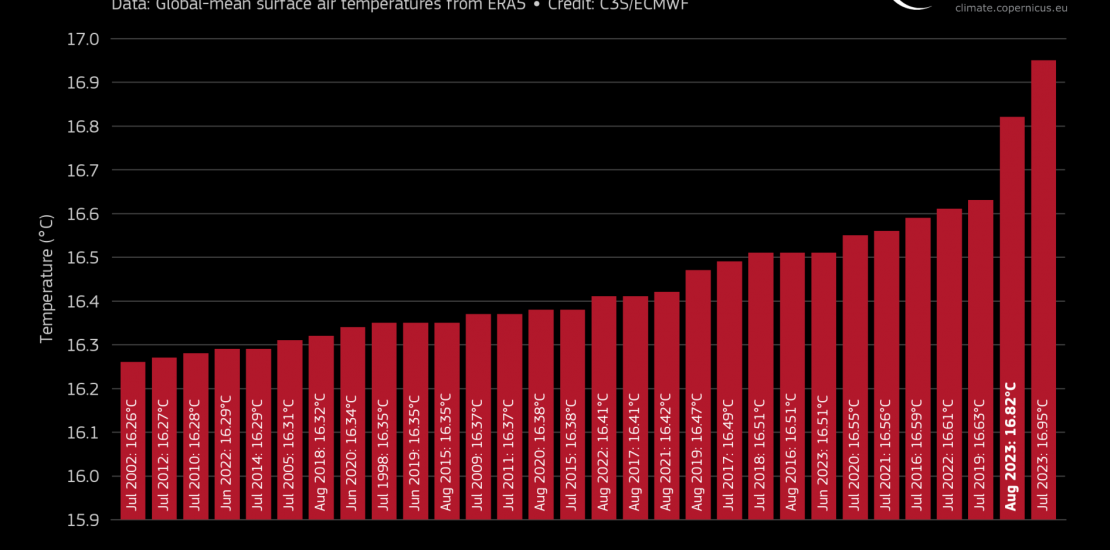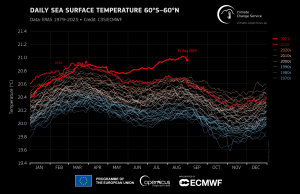WMO report indicates Earth had hottest three-month period on record, with unprecedented sea surface temperatures.
- September 7, 2023
- Posted by: Sinead Sprigg
- Category: Environmental, Global, Reports, Water Issues

The Earth has just experienced its hottest three-month period on record, as reported by the European Union-funded Copernicus Climate Change Service (C3S), operated by ECMWF.
The data indicates that global sea surface temperatures have reached unprecedented levels for the third consecutive month, while Antarctic sea ice extent remains at an all-time low for this time of the year.
August 2023 marked the hottest August on record, surpassing previous records by a significant margin. It stands as the second hottest month ever recorded, following July 2023. This places August’s temperature at approximately 1.5°C higher than the preindustrial average of 1850-1900, according to the C3S monthly climate bulletin. The year-to-date data from January to August ranks 2023 as the second warmest year on record, with 2016 holding the top spot due to a strong El Niño event.
Antarctic sea ice extent remained at a record low level for the time of year, with a monthly value 12% below average, by far the largest negative anomaly for August since satellite observations began in the late 1970s. Arctic sea ice extent was 10% below average, but well above the record minimum of August 2012.

The World Meteorological Organization (WMO) compiles data from C3S and five other international datasets for climate monitoring. In May, a joint report from the WMO and the UK’s Met Office projected a 98% likelihood of one of the next five years becoming the warmest on record, with a 66% chance of temporarily exceeding a 1.5°C increase above the 1850-1900 average within that time frame.
“Our planet has just endured a season of simmering — the hottest summer on record. Climate breakdown has begun. Scientists have long warned what our fossil fuel addiction will unleash. Surging temperatures demand a surge in action. Leaders must turn up the heat now for climate solutions. We can still avoid the worst of climate chaos – and we don’t have a moment to lose,” said UN Secretary-General António Guterres.
WMO Secretary-General Prof. Petteri Taalas noted the extreme conditions experienced in both hemispheres, noting that “in the southern hemisphere Antarctic sea ice extent was literally off the charts, and the global sea surface temperature was once again at a new record. It is worth noting that this is happening BEFORE we see the full warming impact of the El Niño event, which typically plays out in the second year after it develops”.
Carlo Buontempo, Director of the Copernicus Climate Change Service at ECMWF, underscored the persistence of these record-breaking climate conditions and their far-reaching impacts on the planet and its inhabitants.
More information on the sea surface temperatures in August 2023 can be found here.
